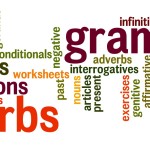Track Your Progress in Language Learning – 6 Easy Ways to Do It

I used to hate it passionately. I mean, how much geekier can you get? And all these vain people scrupulously jotting down their weight. Pathetic!
And then, one day, I decided to buy myself scales. I joyously stepped on them to see that I hit 100 kg mark. WHAT?! I came to my senses around that time and started tracking, not only my weight but my learning progress as well.
Can you imagine a runner who runs around and one day shouts out: "I'm gonna win a marathon"! And then an older man standing nearby strikes a conversation, something along these lines:
- "That's amazing! So what's your best time so far?"
+ "Best? Uhmm, dunno, really. I guess it's not that important to me."
- "Have you ever run a marathon before?!"
+ "I'm not sure. But once I ran so long that my feet hurt and I had an ouchie."
That would be weird, right? And yet, a lot of us do it. The question is: Why?
Why You Should Track Your Progress in Language Learning - Habituation
Not only is it a cool word, but also one of the most critical (and frequent) processes that occur in our lives!
Habituation is a form of learning in which an organism decreases or ceases to respond to a stimulus after repeated presentations.[1] Essentially, the organism learns to stop responding to a stimulus that is no longer biologically relevant. For example, organisms may habituate to repeated sudden loud noises when they learn these have no consequence. The Almighty Wikipedia
And therein lies the rub. We get used to our current skills level. And that's why we NEED tracking. The best part is that it does not need to be sophisticated to be effective.
At the bare minimum, it should be able to show you if you're moving in the right direction or moving at all. The chance is that you're spinning your wheels knee-deep in a turd ocean of self-admiration!
6 Ways To Track Your Progress In Language Learning
My idea of tracking my progress is quite tightly connected to the core language competencies: reading, writing, listening, vocabulary, grammar, and speaking.
Of course, to start tracking anything, you need a place to note your progress. Remember, it doesn't have to be high-tech. You can use a notebook, Google spreadsheet, Excel, or Calc (Open Office).
TRACKING VOCABULARY
I assume that you already use Anki. If you don't, download it immediately (unless you use some other spatial repetition program).
ANKI makes tracking your progress easy. The first important piece of information for us is the number of words you've covered so far.
If you see that within a month you've moved from 406 to 700, it's a clear sign that you're on the right path.
The second thing worth tracking is the recall rate (especially correct mature).
This piece of information tells us how well you remember the information you learn. If it's alarmingly low (below 40-50%), it's a signal that you should seriously consider improving your learning techniques.
TRACKING READING
Usually, we either read e-books (e-articles) or paper ones. In my opinion, you should track the medium which you use more frequently. When it comes to reading, a good tracking criterion is to note down the number of pages you've read.
TRACKING LISTENING
It doesn't matter whether you listen to podcasts, music, or watch TV-series. Tally it up and enter the data.
TRACKING WRITING
If you write mostly online, start counting how many words you have written (use Word Count Tool). Otherwise, start counting the number of pages you've written.
TRACKING SPEAKING
It's not the easiest thing to track. I've never done it as I prefer tracking words. But if you know that speaking is your absolute priority - go for it. Check when the Skype conversation or a meeting with your friend starts and when it finishes, and sum up the total number of hours.
If you put effort into your learning, I'm sure that after just a few weeks, you'll be amazed to see what you've accomplished so far!
TRACKING GRAMMAR
It sounds daunting, and I agree. But for me, it comes naturally. As I've written before, preparing the outline of grammar is something that should be done before you start learning a language on your own.
Once you have it, start crossing out the grammar topics which you've covered or just put a date next to them. It shows how much further grammatically you should get to achieve a certain level.
Benefits Of Tracking Your Progress
1) you never hit a plateau
You see and know that you're making progress.
2) increased motivation
You can admire your hard work at any time. Open Excel and take a look at yourself, you sexy, hard-working beast! And that helps you stay focused.
3) instant feedback
You see when you slack off or that your learning methods need a change. The data don't lie! Also, it helps you see patterns in your learning.
4) you don't focus on the negative
It's a sad fact, but we tend to focus on negative things in life. Your successes stop giving you joy after a couple of days. We lose sight of our achievements. Your language log will keep on reminding you about them!
Track Your Progress In Language Learning - Summary
Tracking is a powerful tool in language learning. It would be a shame not to take advantage of it. Of course, you don't have to go over the top. It's enough that you start tracking elements that are the most important to you.
So go ahead and let me know how it works for you!
Done reading? Time to learn!
Reading articles online is a great way to expand your knowledge. However, the sad thing is that after barely 1 day, we tend to forget most of the things we have read.
I am on the mission to change it. I have created over 9 flashcards that you can download to truly learn information from this article. It’s enough to download ANKI, and you’re good to go. This way, you will be able to speed up your learning in a more impactful way.













Thank you, you are very good in writing articles! They are very useful and you have a realy good sence of humor 😉
I am doing my best. Thank you!:)
Thanks for the recommendation! Will be using this. See you in ten days.
I will have to get my head around Anki. Again. I tried it a year ago, it didn’t stick, but I’ll try it again.